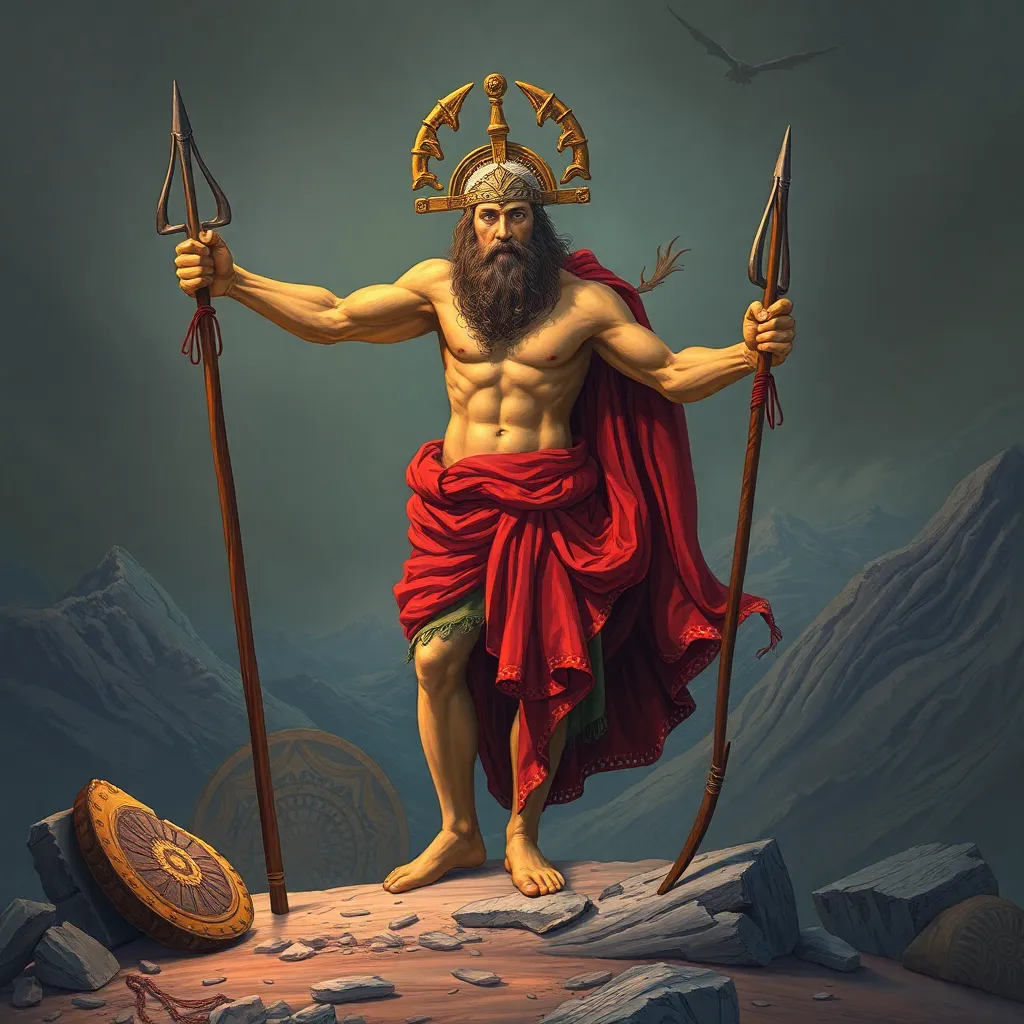Understanding the Role of Apsyrtus in Jason’s Tale
I. Introduction
The myth of Jason and the Argonauts is one of the most captivating stories in Greek mythology, filled with quests, heroic deeds, and complex characters. At the heart of this tale lies the quest for the Golden Fleece, a symbol of authority and kingship that Jason must retrieve to reclaim his rightful throne. Among the many figures entwined in this narrative is Apsyrtus, a character whose significance is often overshadowed by more prominent heroes and heroines.
This article aims to explore Apsyrtus’s role within Jason’s tale, delving into his background, motivations, and the thematic implications of his actions. By understanding Apsyrtus, we can gain deeper insights into the dynamics of loyalty, betrayal, and conflict that permeate this myth.
II. Background of Apsyrtus
Apsyrtus is rooted in a rich mythological heritage. He is the son of Aeëtes, the king of Colchis, and the brother of Medea, the sorceress who plays a pivotal role in Jason’s quest. Apsyrtus’s lineage places him firmly within the royal family of Colchis, which adds layers of complexity to his character and motivations.
Throughout various myths, Apsyrtus is depicted as a loyal brother who seeks to protect his sister and uphold the honor of his family. However, his character has seen different interpretations across sources:
- In some versions, he is portrayed as a valiant warrior determined to retrieve the Golden Fleece and confront Jason.
- Other interpretations emphasize his tragic fate and the consequences of familial loyalty.
III. Apsyrtus’s Role in Jason’s Quest
Apsyrtus emerges as a significant figure in the pursuit of Jason and the Argonauts. His journey unfolds as he chases Jason, who has absconded with Medea after receiving her assistance in obtaining the Golden Fleece. Apsyrtus’s motivations can be understood through several lenses:
- **Loyalty to Family**: Apsyrtus is driven by a sense of duty to protect his sister and reclaim her from Jason.
- **Desire for Honor**: As a member of the Colchian royal family, he seeks to restore his family’s honor tarnished by Jason’s actions.
Key events in Apsyrtus’s journey include his strategic efforts to confront Jason and the Argonauts, showcasing his skills as a warrior and leader. His pursuit introduces an element of tension and conflict that deepens the narrative.
IV. Apsyrtus as a Symbol of Loyalty and Betrayal
Apsyrtus embodies the intricate themes of loyalty and betrayal that permeate the myth. His relationship with Medea highlights the bonds of family and the lengths one will go to protect loved ones. However, Apsyrtus’s loyalty is tested when he confronts the man who has taken his sister away.
The themes of betrayal are also pronounced in his actions:
- **Family vs. Duty**: Apsyrtus’s allegiance to his family clashes with his role as a protector of Medea.
- **Moral Conflicts**: His pursuit of Jason raises questions about morality and the costs of familial loyalty.
In contrast, Jason’s moral dilemmas further complicate the narrative, as he grapples with the consequences of his choices, creating a rich tapestry of ethical questions.
V. The Conflict Between Apsyrtus and Jason
The confrontations between Apsyrtus and Jason serve as pivotal moments in the story. Their battles are not only physical but also represent a clash of ideals and values. Apsyrtus employs various strategies to oppose Jason, showcasing his prowess as a warrior:
- **Ambush Tactics**: Apsyrtus often resorts to cunning and surprise to counter the Argonauts.
- **Direct Confrontation**: His willingness to face Jason in battle speaks to his bravery and commitment to family honor.
The significance of their conflict extends beyond personal vendetta; it reflects the broader themes of rivalry, the consequences of betrayal, and the tragic outcomes that arise from familial obligations.
VI. Apsyrtus’s Fate and Its Implications
Apsyrtus’s demise is one of the most tragic elements of his character arc. Ultimately, he meets his end at the hands of Jason, which serves as a critical turning point in the narrative. The circumstances surrounding his death are steeped in irony and sorrow:
- **Medea’s Role**: In some versions, Medea plays a pivotal role in Apsyrtus’s demise, marking a heartbreaking betrayal of family loyalty.
- **Consequences for Jason and Medea**: Apsyrtus’s death has lasting effects on both Jason and Medea, shaping their futures and relationships.
This tragic conclusion not only highlights the cost of ambition and loyalty but also invites reflection on the nature of heroism and the complexities of familial bonds.
VII. Apsyrtus in Literary and Artistic Representations
Apsyrtus’s character has been depicted in various forms throughout history, from classical literature to modern adaptations. His portrayal varies significantly across different mediums:
- **Classical Literature**: Apsyrtus’s character can be found in works such as Apollonius of Rhodes’ “Argonautica,” where he is depicted as a tragic figure caught in the web of family loyalty and conflict.
- **Artistic Interpretations**: Throughout history, artists have captured the moments of his pursuit and confrontation with Jason, often highlighting the dramatic tensions of their conflict.
- **Modern Adaptations**: Contemporary adaptations explore Apsyrtus’s character through diverse lenses, often reinterpreting his motives and relationships with a modern sensibility.
VIII. Conclusion
Apsyrtus’s significance in Jason’s tale cannot be understated. His character embodies the themes of loyalty, conflict, and tragedy that resonate throughout Greek mythology. By examining Apsyrtus’s motivations, actions, and ultimate fate, we gain valuable insights into the complexities of familial relationships and the moral dilemmas faced by the characters in this myth.
As we reflect on Apsyrtus’s role, it becomes clear that his story serves as a poignant reminder of the costs of ambition and the often-painful consequences of betrayal. His legacy continues to impact mythological narratives, inviting us to ponder the enduring themes of loyalty, conflict, and the tragic nature of human existence.




